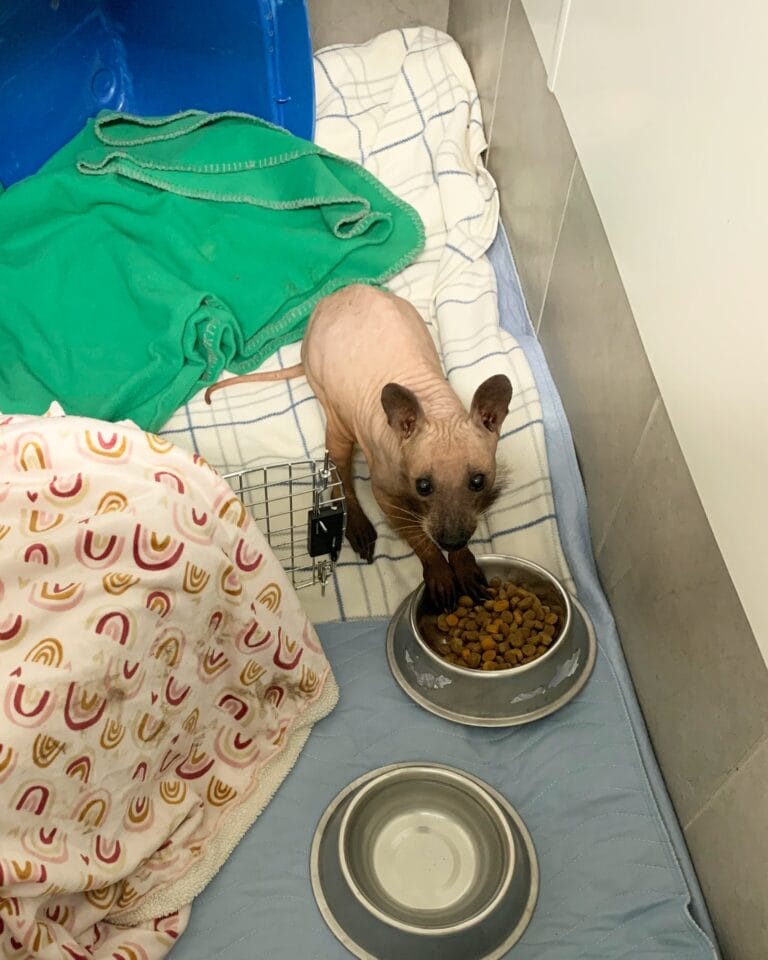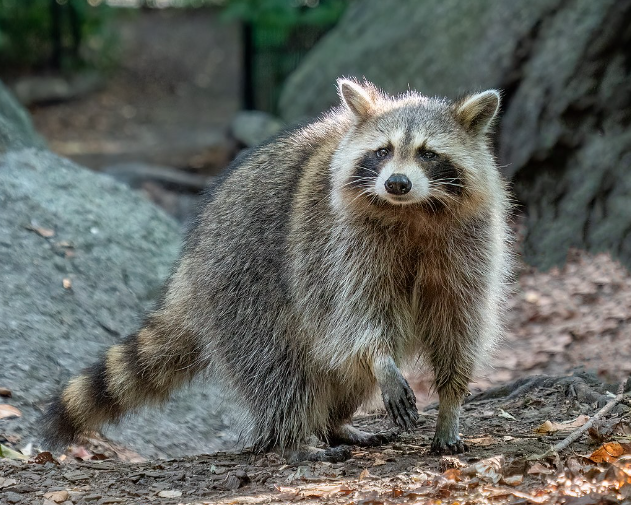
Fur is extremely vital to many animals because it provides much-needed protection from the cold. It also gives them their distinguishing appearances; certain animals may be unrecognizable if fully hairless.
Recently, rescuers took in a critter that resembles a hairless cat but is actually more rarer. Continue reading to discover about this remarkable creature’s unlikely survival.
Last month, Hope for Wildlife, a nonprofit conservation organization in Nova Scotia, took in the most unusual animal. According to the Canadian Press, a couple in West Arichat discovered the animal in their backyard, shivering in the cold.
At first glance, the creature looks like a Sphynx cat, but it isn’t — it’s actually a completely hairless raccoon!

It’s difficult to detect a raccoon without its distinctive mask-like fur pattern. This small species, a northern raccoon, is entirely bald due to severe alopecia.
The rescue says they’ve seen other cases of balding raccoons, but nothing like this: “It’s just tufts of fur around the snout, ankles, and feet. “This is a severe case,” Hope Swinimer, head of Hope for Wildlife, told The Canadian Press.
Although the raccoon is female, she has been named Rufus after the naked mole rat character from the show Kim Possible.
The rescue said on Facebook that they have not fully diagnosed the cause of her hair loss, which could be an immunological condition that damages her hair follicles. They also ruled out parasites, mange, and fungal illnesses, noting that her skin was healthy.

Raccoons rely on their fur to stay warm and shield their skin from the weather; the rescuers couldn’t believe Rufus had survived so long.
“We are quite amazed that this little lady managed to make it [through] the winter without fur and without suffering from frostbite or worse!” they remarked on their Facebook page.
They added that she had a “feisty” personality and that “her successful survival was all her own doing.” Even so, it seems like she was rescued just in time, as she was reportedly “down and out upon arrival.”
“We were panicking for a few short hours … but she got hungry and came out. She’s getting quite feisty and we’ve seen a big improvement since she first arrived,” Swinimer told The Canadian Press.
Given the circumstances, Rufus might become a permanent resident of the shelter, and will have a specialized habitat, an outdoor space with a space to crawl into to keep warm, as well as amenities like hammocks and nesting boxes.